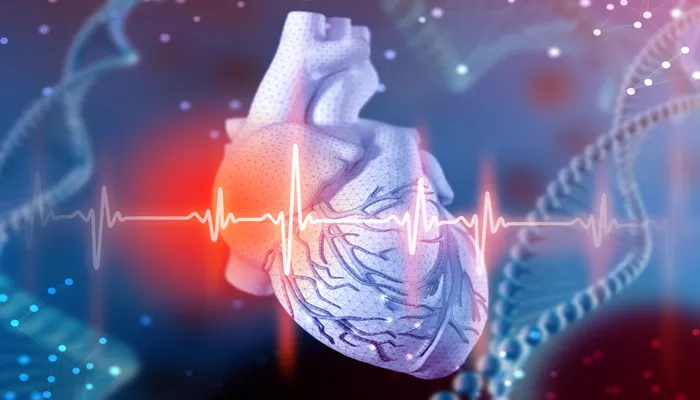Arrhythmias are abnormal heart rhythms that can lead to various health issues, ranging from mild symptoms to severe conditions that require immediate medical intervention. One particular type of arrhythmia characterized by very fast, uncoordinated quivering is Atrial Fibrillation (AFib). This article will delve into the details of AFib, its causes, symptoms, diagnosis, treatment options, and preventive measures.
Causes And Risk Factors
Several factors can contribute to the development of AFib. Common causes and risk factors include:
Hypertension (High Blood Pressure): Persistent high blood pressure can lead to structural changes in the heart, predisposing it to arrhythmias.
Coronary Artery Disease: Blocked or narrowed arteries can reduce blood flow to the heart, causing arrhythmias.
Heart Valve Disorders: Malfunctioning heart valves can strain the heart and disrupt normal electrical signals.
Hyperthyroidism: An overactive thyroid gland can accelerate heart rate and trigger AFib.
Age: The risk of AFib increases with age, particularly after 60.
Obesity: Excess weight can lead to changes in the heart’s structure and function.
Alcohol Consumption: Heavy drinking and binge drinking episodes can precipitate AFib.
Sleep Apnea: Obstructive sleep apnea can cause intermittent hypoxia, leading to AFib.
SEE ALSO: How to Measure Respiratory Sinus Arrhythmia
Symptoms of Atrial Fibrillation
The symptoms of AFib can vary widely among individuals. Some people may be asymptomatic, while others experience significant discomfort. Common symptoms include:
Palpitations: A rapid, irregular heartbeat or fluttering sensation in the chest.
Fatigue: A feeling of exhaustion or lack of energy.
Shortness of Breath: Difficulty breathing, especially during physical exertion.
Dizziness or Lightheadedness: Feeling faint or unsteady.
Chest Pain: Discomfort or pain in the chest, which may be a sign of a more serious condition like angina or a heart attack.
Complications of Atrial Fibrillation
AFib can lead to several serious complications if not properly managed. These include:
Stroke: AFib increases the risk of blood clots forming in the atria, which can travel to the brain and cause a stroke.
Heart Failure: The irregular rhythm can weaken the heart over time, leading to heart failure.
Cognitive Decline: Chronic AFib has been linked to an increased risk of cognitive impairment and dementia.
Blood Clots: In addition to strokes, AFib-related blood clots can cause blockages in other parts of the body, leading to organ damage.
Diagnosis of Atrial Fibrillation
Medical History and Physical Examination
The diagnosis of AFib often begins with a thorough medical history and physical examination. A healthcare provider will ask about symptoms, lifestyle factors, and any underlying health conditions that might contribute to arrhythmias.
Electrocardiogram (ECG)
An ECG is a primary tool for diagnosing AFib. This non-invasive test records the electrical activity of the heart and can detect irregular rhythms characteristic of AFib.
Holter Monitor
For patients with intermittent AFib, a Holter monitor may be used. This portable device records the heart’s electrical activity over 24-48 hours, providing a more comprehensive view of arrhythmic episodes.
Event Monitor
Similar to a Holter monitor, an event monitor is used for longer durations, typically up to 30 days. It is particularly useful for capturing sporadic arrhythmic events.
Echocardiogram
An echocardiogram uses ultrasound waves to create detailed images of the heart’s structure and function. It helps identify any structural abnormalities or valve disorders that might be contributing to AFib.
Blood Tests
Blood tests can help identify underlying conditions such as thyroid disorders, electrolyte imbalances, or other factors that might be causing or exacerbating AFib.
Treatment Options for Atrial Fibrillation
Medications
Several medications can help manage AFib:
Antiarrhythmics: These drugs help restore normal heart rhythm and prevent future episodes of AFib.
Rate Control Medications: These medications slow down the heart rate, making symptoms more manageable.
Anticoagulants: Blood thinners reduce the risk of blood clots and stroke in patients with AFib.
Electrical Cardioversion
Electrical cardioversion involves delivering a controlled electric shock to the heart to restore a normal rhythm. It is usually performed under sedation in a hospital setting.
Catheter Ablation
Catheter ablation is a minimally invasive procedure that targets and destroys the abnormal heart tissue causing AFib. It is often considered for patients who do not respond to medications or electrical cardioversion.
Maze Procedure
The Maze procedure is a surgical intervention where a series of incisions are made in the atria to create a “maze” of scar tissue. This scar tissue helps redirect electrical signals and prevent AFib.
Lifestyle Modifications
Making certain lifestyle changes can significantly reduce the frequency and severity of AFib episodes:
Diet: Adopting a heart-healthy diet, rich in fruits, vegetables, whole grains, and lean proteins.
Exercise: Regular physical activity can improve cardiovascular health and reduce AFib symptoms.
Weight Management: Maintaining a healthy weight can decrease the risk of AFib.
Alcohol and Caffeine: Limiting or avoiding alcohol and caffeine intake can help prevent AFib episodes.
Stress Management: Techniques such as yoga, meditation, and deep breathing exercises can reduce stress and its impact on the heart.
Preventive Measures for Atrial Fibrillation
Regular Medical Check-ups
Regular visits to a healthcare provider can help monitor heart health and detect any early signs of AFib.
Managing Underlying Conditions
Controlling conditions such as hypertension, diabetes, and sleep apnea can reduce the risk of developing AFib.
Avoiding Triggers
Identifying and avoiding personal triggers, such as certain foods, medications, or activities, can help prevent AFib episodes.
Adherence to Treatment Plans
Consistently following prescribed treatment plans and medication regimens can effectively manage AFib and reduce complications.
Conclusion
Atrial Fibrillation is a complex arrhythmia characterized by very fast, uncoordinated quivering of the atria. Understanding its causes, symptoms, diagnosis, and treatment options is crucial for effective management and prevention. By taking proactive measures and working closely with healthcare providers, individuals with AFib can lead healthier, more active lives while minimizing the risk of serious complications.

